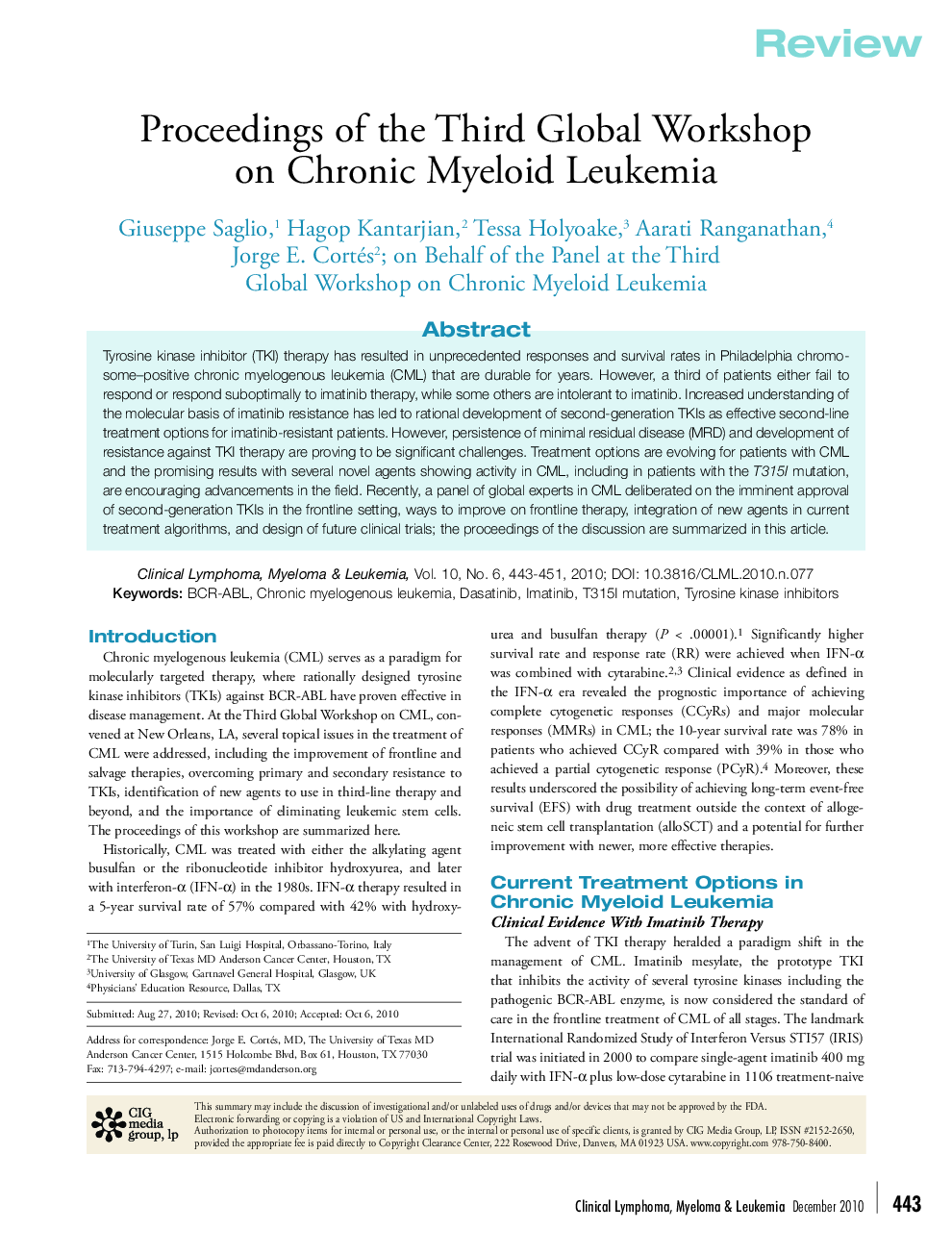| Article ID | Journal | Published Year | Pages | File Type |
|---|---|---|---|---|
| 2754753 | Clinical Lymphoma Myeloma and Leukemia | 2010 | 9 Pages |
Tyrosine kinase inhibitor (TKI) therapy has resulted in unprecedented responses and survival rates in Philadelphia chromosome–positive chronic myelogenous leukemia (CML) that are durable for years. However, a third of patients either fail to respond or respond suboptimally to imatinib therapy, while some others are intolerant to imatinib. Increased understanding of the molecular basis of imatinib resistance has led to rational development of second-generation TKIs as effective second-line treatment options for imatinib-resistant patients. However, persistence of minimal residual disease (MRD) and development of resistance against TKI therapy are proving to be significant challenges. Treatment options are evolving for patients with CML and the promising results with several novel agents showing activity in CML, including in patients with the T315I mutation, are encouraging advancements in the field. Recently, a panel of global experts in CML deliberated on the imminent approval of second-generation TKIs in the frontline setting, ways to improve on frontline therapy, integration of new agents in current treatment algorithms, and design of future clinical trials; the proceedings of the discussion are summarized in this article.
